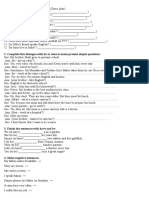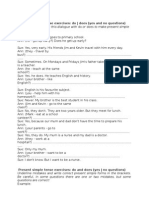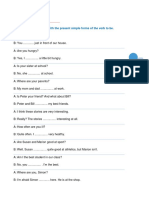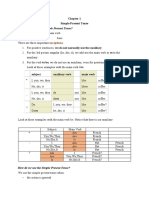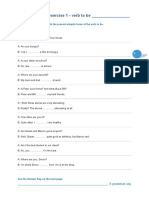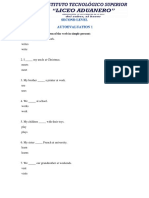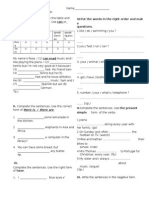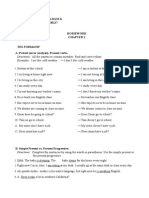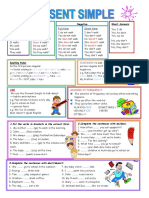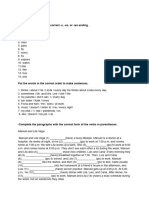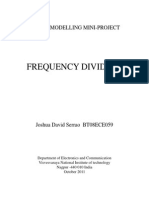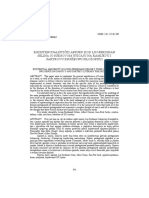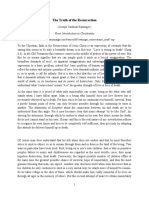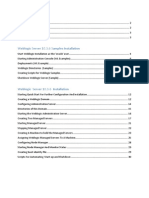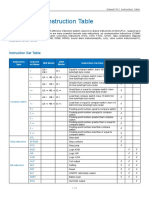0% found this document useful (0 votes)
20 views4 pagesPresent Simple Exercises
This document contains exercises focused on the present simple tense, including forming questions, correcting mistakes, and completing sentences. It includes dialogues, negative sentence formation, and practical applications of verbs in context. Additionally, it features a section for completing wh- questions based on an interview scenario.
Uploaded by
IreneCopyright
© © All Rights Reserved
We take content rights seriously. If you suspect this is your content, claim it here.
Available Formats
Download as PDF, TXT or read online on Scribd
0% found this document useful (0 votes)
20 views4 pagesPresent Simple Exercises
This document contains exercises focused on the present simple tense, including forming questions, correcting mistakes, and completing sentences. It includes dialogues, negative sentence formation, and practical applications of verbs in context. Additionally, it features a section for completing wh- questions based on an interview scenario.
Uploaded by
IreneCopyright
© © All Rights Reserved
We take content rights seriously. If you suspect this is your content, claim it here.
Available Formats
Download as PDF, TXT or read online on Scribd
/ 4
